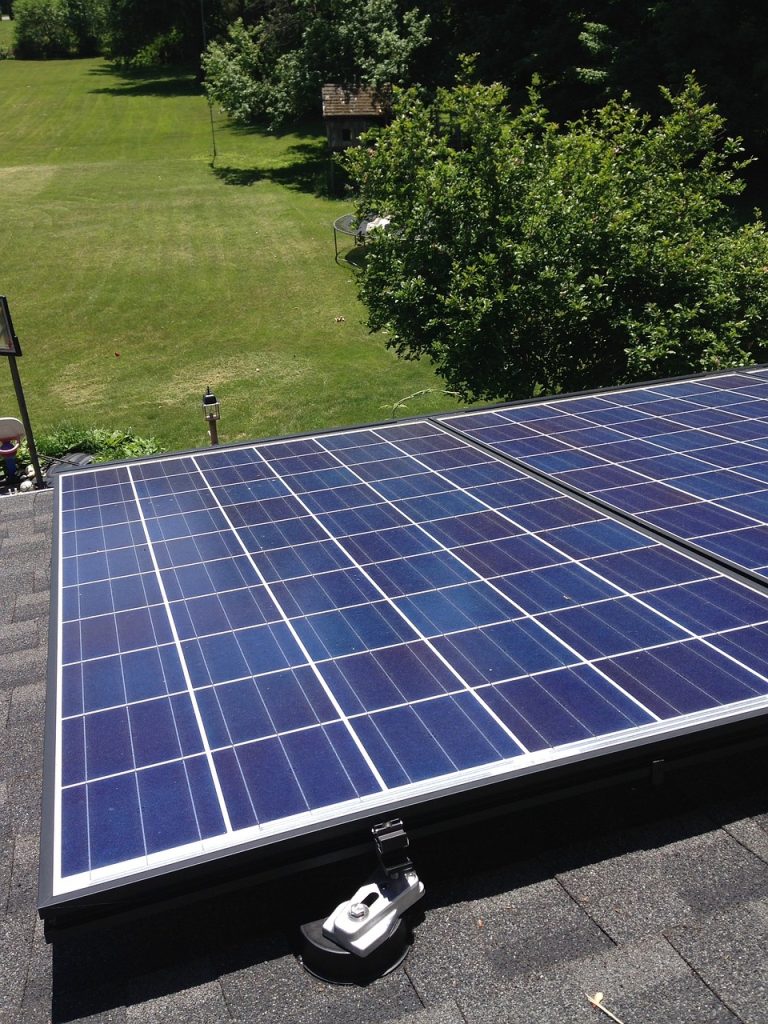As energy costs rise and environmental awareness grows, more homeowners are thinking about solar panels as a way to cut utility bills and reduce their carbon footprint. But installing solar isn’t a one-size-fits-all solution—it’s a long-term investment that works best when approached with a clear understanding of the benefits, limitations, and variables involved.
If you’re wondering whether solar panels are right for your home, here are the key factors to consider before making the leap.
- Your Roof’s Condition and Orientation
Before installing solar panels, take a close look at the physical characteristics of your roof:
Age and condition: If your roof is nearing the end of its life (typically 20–25 years for asphalt shingles), it’s wise to replace it before adding panels. Removing and reinstalling solar panels for a roof replacement can be costly.
Sun exposure: South-facing roofs with little to no shading generally offer the best solar performance. East- and west-facing roofs can still be viable, but may generate slightly less power.
Pitch and size: Roofs with moderate slopes tend to capture more sunlight throughout the day. Ample surface area is also crucial—especially if your household has high energy demands.
If your roof isn’t ideal, a ground-mounted solar system could be an alternative, though it requires sufficient yard space and different installation logistics.
- Local Climate and Energy Usage
Contrary to popular belief, you don’t need to live in a perpetually sunny climate to benefit from solar energy. Solar panels work in a variety of weather conditions, including cloudy and cold environments. However, overall sunlight exposure still affects long-term output.
Also consider your current and future energy usage. Homes with high energy consumption—due to electric heating, air conditioning, or vehicle charging—may see a faster return on investment than homes with minimal energy use.
Review your utility bills over the past year to understand your baseline energy needs and determine whether solar could meaningfully offset your electricity costs.
- Upfront Costs and Financial Incentives
While solar panels can ultimately save money, the initial expense can be significant. The total cost includes panels, inverters, mounting equipment, permits, labor, and potentially battery storage if you want energy independence during outages.
Key financial considerations:
Tax incentives: Many homeowners qualify for federal tax credits, and some states or local utilities offer additional rebates.
Financing options: You can buy panels outright, finance through a loan, or lease from a third-party provider. Each option has pros and cons regarding ownership, maintenance, and savings.
Payback period: Depending on your energy usage, location, and installation cost, the average payback period for residential solar panels is typically between 6 to 12 years.
Crunching the numbers in advance can help you decide whether the long-term savings justify the short-term investment.
- Regulations and HOA Guidelines
Some areas have zoning restrictions, building codes, or homeowners’ association (HOA) rules that impact where and how solar systems can be installed. Research local ordinances and permitting requirements before moving forward.
Additionally, utilities in some regions may have limitations on net metering—the process of selling excess energy back to the grid. Net metering policies vary widely and can significantly influence your long-term savings.
- Maintenance and System Lifespan
Solar panels require minimal maintenance, but they’re not entirely maintenance-free. Occasional cleaning may be needed to remove dirt or snow buildup, especially in dusty or snowy climates. Inverter components typically need replacement after 10–15 years.
Most solar panel manufacturers offer warranties of 20–25 years, with actual panel lifespans often exceeding 30 years. That makes solar a long-term commitment—so it’s important to be confident in your homeownership plans and expectations for the future.
Final Thoughts
Solar panels can be a smart, sustainable upgrade for many homeowners—but they aren’t automatically the right choice for every property. A thoughtful assessment of your home’s physical characteristics, financial situation, and energy goals can help you determine whether solar is a good fit or whether other efficiency improvements might deliver better returns.

